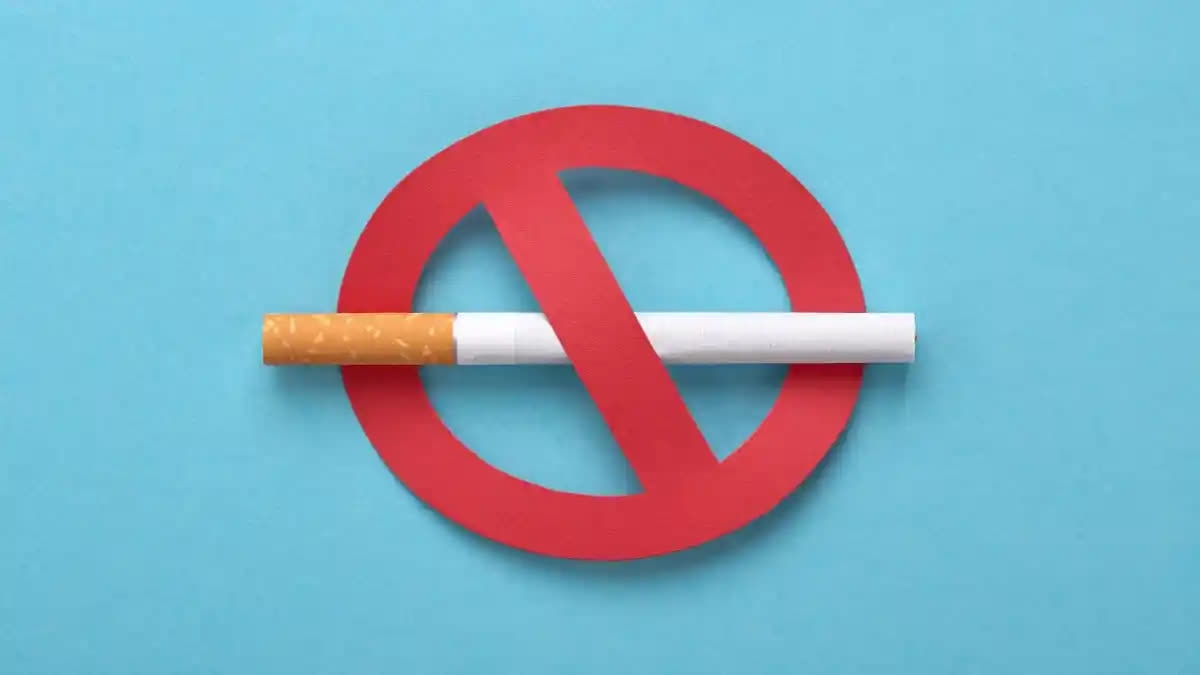Hyderabad: You thought smokers are leaner than non-smokers, well a new study puts this additional benefit also in the kitty of those who ditch the fag. A study in Journal Addiction says while quitting smoking can cut down risks of heart and lung diseases and cancers, it also has the additional benefit of reducing belly fat.
The study found that both starting smoking and lifetime smoking may increase a person’s abdominal fat-especially visceral fat. Visceral fat, also known as toxic fat, is fat that accumulates around internal organs and within the abdominal wall. The abdominal circumference or this stubborn fat is associated with a greater risk of diabetes, heart attacks, and strokes. Some studies have related abdominal fat to dementia as well.
Smoking and Belly Fat
Experts believe and studies have shown many people are reluctant to quit smoking because they feel there will be weight gain. However, this study shows continuing to smoke may also contribute to weight gain and increase in belly fat.
This connection is generally hard to make as smoking has always been associated with less appetite and hence weight loss. However, one of India's leading nutritionists, Ishi Khosla says that micro nutritional deficiency in smokers can cause an increase in abdominal fat.
"Smokers generally have a micro nutritional deficiency, this, in turn, leads to inflammation, a metabolic syndrome which causes deposition of fat in the abdominal area,'' said Khosla. Abdominal fat deposition is your body telling you that healthy tissues like liver and other organs are getting destroyed and instead there is the deposition of fat in the abdominal area.
Experts say it's also about raised levels of bad cholesterol. "Smoking can raise LDL cholesterol levels (bad cholesterol) and lower HDL cholesterol levels (good cholesterol)''. Visceral fat is directly linked with high total and LDL cholesterol, low HDL cholesterol, insulin resistance, and metabolic syndrome.
While quitting smoking may lead to some weight gain initially, experts feel that it can be managed but belly fat will surely lead to severe disease conditions.
Smoking and Genes.
Do genes play a part?
The study was primarily aimed at estimating causality between smoking and abdominal obesity using multiple genetic instruments. The study was based on a method called Mendelian randomisation.
The findings showed a positive causal effect of smoking initiation and also lifetime smoking on waist-hip ratio (WHR). In the follow ups it was shown that smoking led to increased visceral fat. The study shows effects of smoking are independent of socioeconomic status, education, drinking, attention-deficit/ hyperactivity disorder (ADHD), and risk-taking behaviours.
The researchers also found that the heaviness of smoking or the number of cigarettes per day does not affect belly fat.
The researchers at the NNF Center for Basic Metabolic Research at the University of Copenhagen used two large European ancestry studies. The data used in these studies was mammoth- a million people who had just started more than 450,000 who were lifetime smokers. Additionally, body fat distribution data from over 600,000 people was also used.
The researchers also had body fat distribution data for a study including more than 600,000 people.
Takeaway
There is no benefit to smoking. A cigarette smoker is leaner, is a myth. So don't be afraid that you might gain a few kilos you might gain after you quit. The weight gain after quitting smoking is short-term.
The nicotine in cigarettes does suppress appetite as nicotine in cigarettes makes you feel full and quitting smoking may lead you to eat more food. Experts believe this also happens as people tend to replace their cigarette addiction with something else like food. People turn to food, eat more than usual, and gain weight.
The way out is the same old simple mantra- adopting a healthy lifestyle with excess calories, eating a balanced diet, and exercising daily.
Stress Management- some specific number of hours of sleep and having a sound sleep is also important.
Blurb
What does the study tell us?
Stopping smoking is critical for public health efforts to reduce the incidence of chronic diseases of the heart and lungs. This study says there is an additional benefit of losing belly fat.
Even though smokers have leaner bodies, they have more abdominal fat than non-smokers, elevating the risk of cardiometabolic diseases like heart attacks and diabetes.
Quitting smoking is often associated with gain but that can be managed by adopting a healthy lifestyle.



